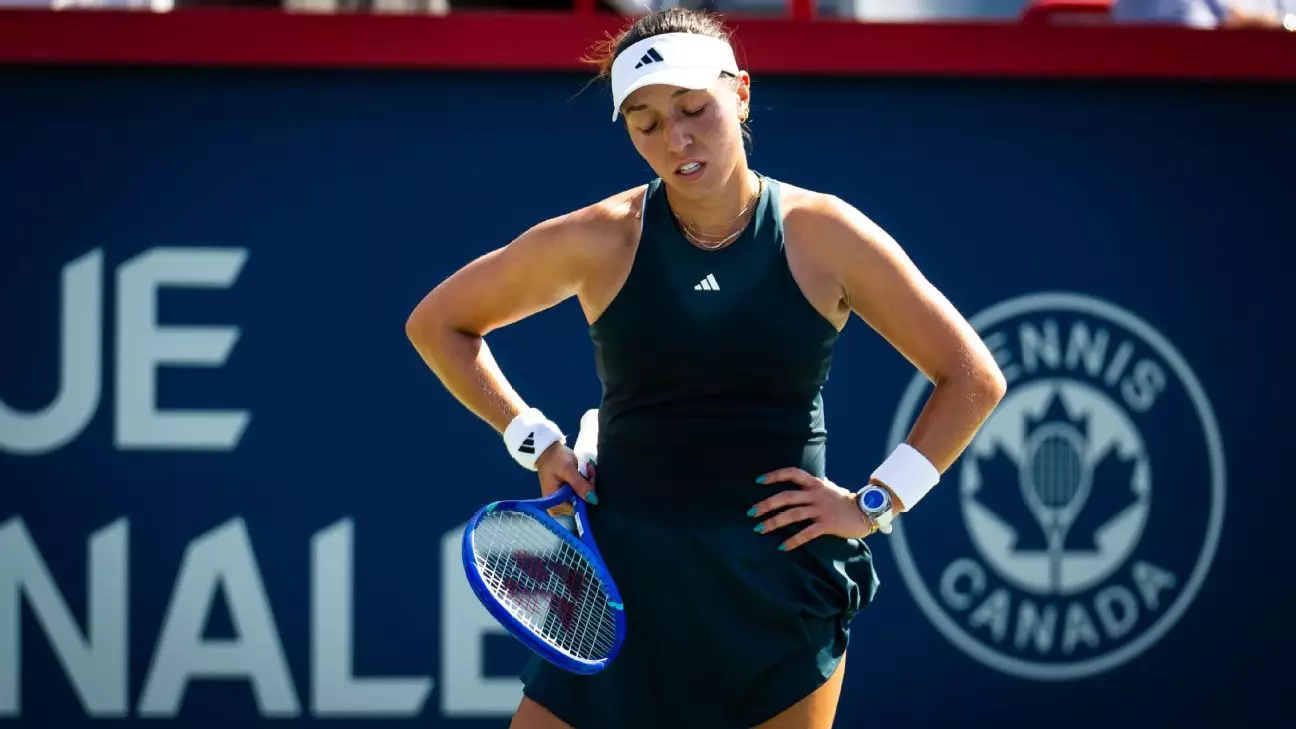In the modern landscape of professional tennis, the narrative often revolves around youthful exuberance and raw talent. However, the recent collapse of favorites like Jessica Pegula and the inspiring resurgence of seasoned players like Anastasija Sevastova underscore a vital truth: experience and resilience can challenge and even overturn the dominance of younger competitors. Sevastova, a 35-year-old veteran who had fallen dramatically in the rankings due to injuries, defied predictions and proved that perseverance can be a game-changer. Her victory over Pegula, who was considered a top contender, exemplifies how maturity, strategic patience, and mental toughness often outshine youthful bravado.
Contrary to the prevailing obsession with emerging stars, the story of Sevastova reminds us that physical setbacks and setbacks in the rankings do not necessarily diminish a player’s capacity to compete at the highest level. Her return from a torn ACL, complicated by maternity leave and a significant ranking drop, is a testament to the importance of mental fortitude and relentless fighting spirit. The sport’s narrative is enriched when seasoned athletes re-emerge with renewed purpose, challenging the myth that only young players can dominate. Experience, after all, imparts a strategic edge—allowing players to read opponents more effectively and adapt their game on the fly.
The Thin Line Between Confidence and Inconsistency in Top Performers
Jessica Pegula’s unfortunate exit in Montreal highlights an often overlooked truth: even the most consistent players are vulnerable to fluctuations in form. Pegula, who recently won her first tournament and entered this event with high hopes, admitted her performance had been “up and down,” revealing how mental and physical fatigue can break confidence in crucial moments. Her struggles serve as a reminder that tennis is as much a mental game as it is physical. Maintaining composure during pressure moments is a skill that separates the winners from the also-rans.
Pegula’s current slump raises questions about the sustainability of her rising trajectory. The sport demands a delicate balance—confidence must be built up, but it can just as easily be shattered by a few bad days or unexpected challenges. Her comments about the “sloppy” tennis she played reflect the internal struggle many top players face: how to keep sharpness and focus amidst inconsistent form. Success in tennis often hinges on resilience—being able to reset quickly after setbacks and maintain belief in one’s ability. Pegula’s exit is a lesson in humility, emphasizing that no player is invincible, and even the best must fight through periods of doubt.
The Significance of Comebacks and Reinvention in a Competitive Era
Sevastova’s remarkable victory is a powerful illustration of how comebacks can redefine a player’s career and challenge conventional expectations. Coming back from a knee injury, an ACL tear, and a maternity leave, her story encapsulates the essence of human resilience. Despite being ranked as low as 386, her performance on the court demonstrated that skill, bravery, and persistence can rewrite narratives in real time. Her victory over a top-10 opponent is not just a triumph for her personally but also a potent message to the tennis community: setbacks can be springboards for extraordinary comebacks.
What makes her story particularly compelling is her refusal to give up despite the long odds. Her focus on staying in the match, battling through adversity, and displaying remarkable tenacity reaffirms that a resilient mindset is crucial for longevity in sports. In a broader context, her journey is a reminder that reinvention and continuous fighting spirit can sustain careers well beyond the typical prime years. It challenges the often single-minded pursuit of youth and talent, emphasizing that perseverance creates legends, not just skill alone.
The Underdogs and the Unexpected: Catalysts for Excitement and Growth
The tennis world thrives on surprises, and the recent results from Montreal serve as proof that the sport’s excitement lies in unpredictable moments of brilliance. Anastasija Sevastova’s win is a stark example of how underdogs can alter the tournament landscape, injecting freshness and inspiration into the competition. Such upsets serve as a stark reminder that resilience and strategic intelligence often triumph over raw power or youthful energy.
For fans and aspiring players alike, these stories challenge the notion that success is linear or guaranteed for highly ranked athletes. Every match is an opportunity for the underdog to challenge expectations, and their victories add depth and richer narratives to the sport. The underdog’s story often embodies the very essence of athletic competition: the relentless pursuit of excellence against the odds. As Sevastova’s victory illustrates, perseverance, experience, and unwavering belief can propel an athlete to heights that nobody predicted, making tennis far more than just a test of physical skill.
In the end, the latest results serve as a reaffirmation of one fundamental truth: resilience and mental strength are the true power wielded by tennis’s most enduring champions. The thrill of unpredictable victories and the resurgence of seasoned players not only elevate the sport’s narrative but also inspire a broader understanding of what it takes to succeed—beyond age, rankings, or reputation.

